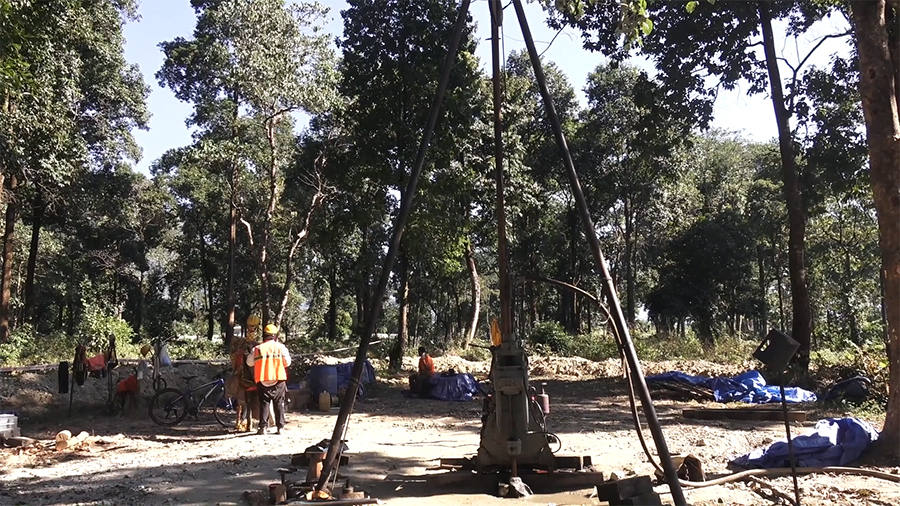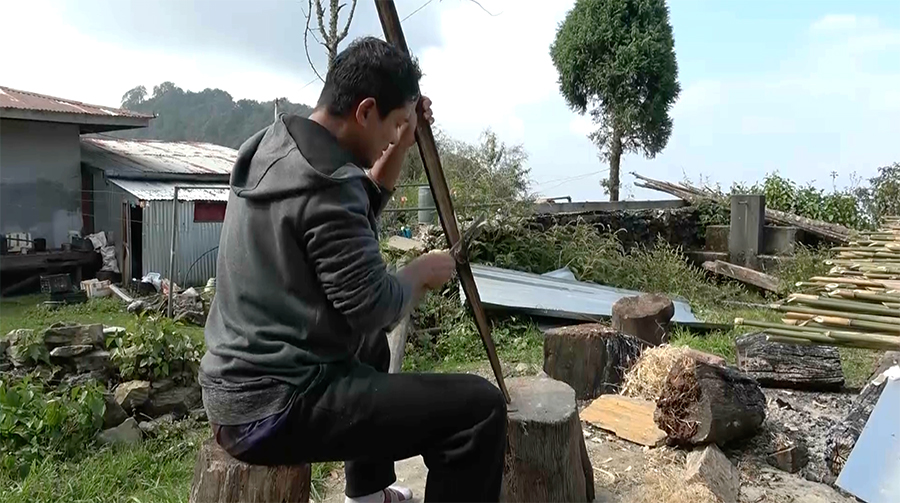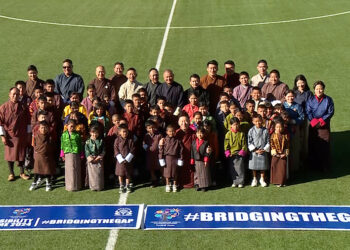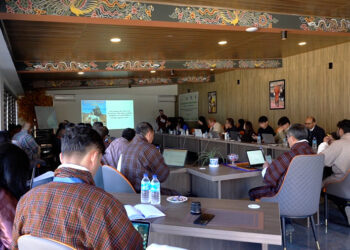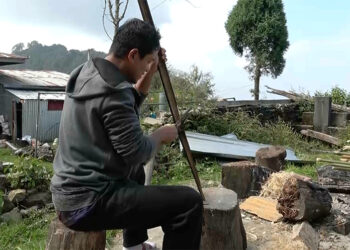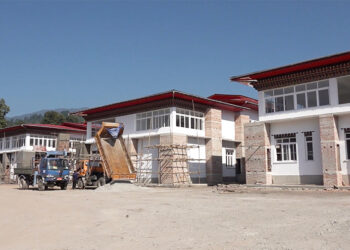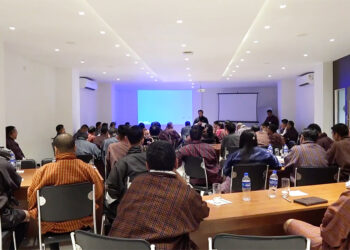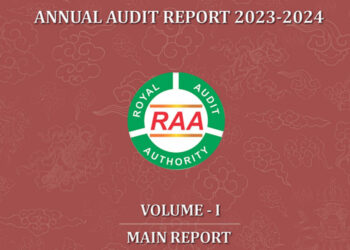Recent Stories
Turning passion into profit: Pema Gatshel man crafts future for traditional archery
In Pema Gatshel’s Shumar Gewog, the sound of bamboo being carved into bows and arrows echoes a story of tradition...
NRDCL shifts to locally sourced timber, making furniture more affordable
Producing furniture using locally sourced wood has not only helped the Wood Craft Centre stop rubberwood import but also made...
Bhutan to build landmark international airport in Gelephu by 2029
During the 117th National Day celebrations at Changlimithang, His Majesty The King announced that Bhutan's priority for the next five...
New landfill to address mounting waste issue in Sakteng
Sakteng in Trashigang, which once boasted of rich, untouched wilderness, is now facing an increasing concern about waste management. The...
WASH FIT Programme sees success, local leaders urge more inclusive facilities
Sanitation and hygiene in healthcare centres have seen significant improvements nationwide in recent years according to local leaders and health...
Public construction quality still lags – RAA Annual Report
The Royal Audit Authority's latest annual report reveals persistent quality issues in public construction, with 139 cases of poor work...
Politics
RCSC defends PME category, proposes targeted support for civil servants
The Royal Civil Service Commission (RCSC) indicated that it is exploring alternative support measures for civil servants classified under the...
Popular
-
Thimphu Police investigate death of man in suspected burglary
-
Six individuals sentenced to upto nine years in sexual abuse cases of minors
-
Elon Musk’s Starlink satellite internet service reaches Bhutan
-
Four + one model to raise funds for Gelephu Mindfulness City
-
Bitdeer’s 500MW Jigmeling facility to be operational mid-to-late 2025
Recent News
His Majesty The King graces 117th National Day celebrations
His Majesty The King graced the 117th National Day celebrations at the Changlimithang Stadium today. His Majesty the Fourth Druk Gyalpo and other members of the Royal Family were also in attendance. More than 20,000 people, including 200 international guests, were also present. His Majesty The King, Her Majesty The Gyaltsuen and their Royal Highnesses Gyalsey Jigme Namgyel and Gyalsey...
Excess payments of Nu 860 M related to public procurement during FY 2023-2024 – RAA Report
During the financial year 2023-2024, the audit report showed excess payments of some Nu 860 M related to public procurement, particularly in construction works. During the period, the authority recommended appropriate actions on 150 officials across 33 agencies. The government is asked to enforce stronger mechanisms and stricter measures. According to the Royal Audit Authority, many excess payments appear to...
Theatre techniques bring new dimensions to advocacy programmes
To enhance the impact of advocacy programmes, 30 members of the Youth Peer Education Network (Y-PEER) from colleges across the country completed a five-day training on theatre-based drama in Thimphu. The Ministry of Education and Skills Development, in collaboration with the United Nations Population Fund, introduced theatre-based techniques by moving away from the traditional awareness methods. The training concluded on...
New landfill to address mounting waste issue in Sakteng
Sakteng in Trashigang, which once boasted of rich, untouched wilderness, is now facing an increasing concern about waste management. The community, now connected with road networks, is seeing an increasing number of shops adding to the waste management issues. The Sakteng Gewog Administration’s new landfill with proper fencing is expected to address the issue. Managing waste, especially plastic, is becoming...
Recent News
- Over 45 students join AFC Social responsibility Programme in Thimphu
- Paro hosts conference on climate solutions for Himalayas
- Four + one model to raise funds for Gelephu Mindfulness City
- Geotechnical survey underway for Gelephu International Airport
- Turning passion into profit: Pema Gatshel man crafts future for traditional archery
News Category
- Accidents
- Agriculture
- Announcement
- Business
- Crime/Legal
- Culture
- Development
- Disaster
- Economy
- Education
- Entertainment
- Environment
- Featured
- Festival
- GMC
- Headlines
- Health
- Legal
- Literature
- Livestock
- Media
- Other Stories
- Politics
- Recent stories
- Religion
- Sci/Tech
- Social
- Sports
- Technology
- Tourism
- Uncategorized
- Video
- Video Story
- Wildlife
© 2024 BBSCL. All rights reserved.




